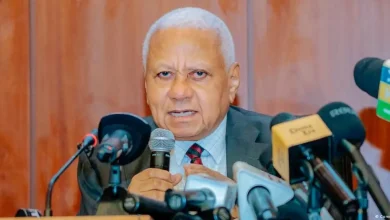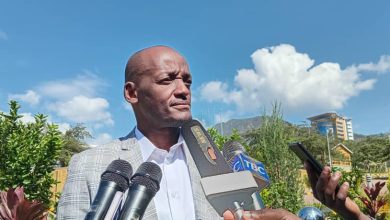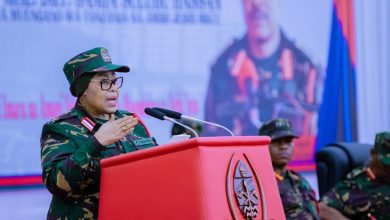‘Address carbon credits tailbacks’

DAR ES SALAAM: CARBON credits are gaining momentum in Tanzania as the government intensifies its efforts to conserve the environment, combat climate change and boost the nation’s economy.
Speaking yesterday at a meeting on climate change for heads of public institutions and organisations, Vice-President Dr Philip Mpango stressed the government’s commitment to addressing the bottlenecks hindering the development of carbon trading in the country.
He issued directives to the National Carbon Monitoring Centre (NCMC) and relevant authorities to resolve the challenges currently slowing the growth of the carbon trading industry in Tanzania.
Dr Mpango also said that leaders of institutions and organisations must contribute to the government’s efforts in combating climate change.
They should prepare and implement strategies aimed at reducing greenhouse gas emissions and increasing resilience to the impacts of climate change.
The two-day meeting, which began yesterday in Dar es Salaam, focuses on enhancing the capacity to address climate change and explore opportunities in carbon trading for the nation’s economic development.
“The sixth phase government is committed to enhancing the contribution of carbon trading to environmental conservation and economic development. The National Carbon Monitoring Centre, which is now officially recognised, has been playing a central role in coordinating this sector within the country,” said Dr Mpango.
He stressed the importance of having a strong system for implementing carbon trading, given the numerous stakeholders involved.
ALSO READ: Tanzania eyes carbon credits funds through Selous
The Vice-President directed the Office of the President, Regional Administration and Local Government (PO-RALG), the Attorney General’s Office and regional governments to meet and establish a unified approach to managing the sector.
He also underscored the value of learning from other countries’ carbon trading operations, to understand how they handle emerging challenges.
Dr Mpango called for greater transparency in carbon trading contracts, stating that clear agreements would facilitate smoother operations and eliminate distrust, which has been fuelled by intermediaries whose selection processes are often unclear.
He instructed the NCMC to accelerate special educational programmes in districts and villages under PO-RALG to increase awareness of carbon trading and its benefits.
Minister of State in the Vice-President’s Office (Union Affairs and Environment), Engineer Hamad Masauni said that the establishment of the NCMC will not only aid environmental conservation but also enable Tanzania to participate in international carbon markets, stimulating investment in other sectors and boosting the national economy.
By February 2025, the centre had received a total of 71 project applications in areas such as natural forest conservation, afforestation, pastureland preservation, agriculture and agroforestry, energy and solid waste management.
“The implementation of these projects is expected to contribute an average of 1 billion US dollars (about 2.4tri/-), annually through the sale of carbon credits for these respective projects,” said Eng Masauni.
On her part, the Zanzibar Minister in the Office of the First Vice-President, Harusi Said Suleiman expressed gratitude to the Union government for its increased efforts in environmental conservation across both Tanzania and Zanzibar.
She called for collective efforts in capacity building and sensitisation on carbon trading to ensure that all stakeholders and the community in Zanzibar are not left behind.





